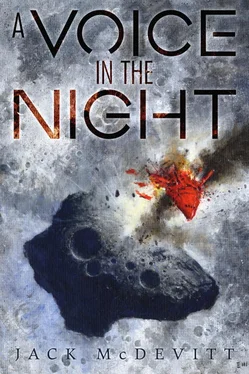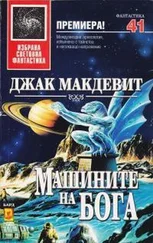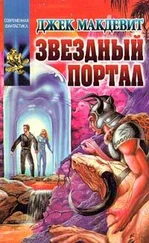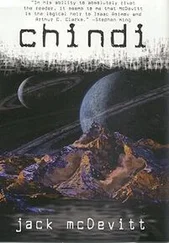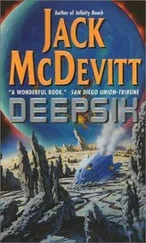“Okay,” I said. “So why didn’t he tell anybody?”

When Watson, supported by a cane, appeared, he had a slight limp, probably resulting from the injury he’d suffered in the Second Afghan War. But he made it onto the stage and took his place at the lectern without any help. The applause was thunderous, and I wondered if maybe I should put the philosophers aside and start writing crime stories. He waited for the noise to subside. When it did, he thanked his audience with a voice that rang out across the theater, a fortunate quality in an era that did not yet have much in the way of microphones. He congratulated them on this “grand milestone in our lives,” and proceeded to talk about achieving success. “It is essential,” he said, “to learn to believe in yourself. Most of us underrate what we are capable of. Authority figures, parents, teachers, doctors, are always showing us what we do wrong. ‘Don’t touch it; you’ll break it.’ We mean well, but after a while, people begin to believe what they hear.
“Be aware that education doesn’t stop with graduation. Keep your mind open. Don’t assume that a position is correct simply because you happen to believe in it. Follow the facts. If they lead in a different direction, then be willing to make the adjustment. It’s okay to be wrong. Just don’t persist in it. That is the definition of stupidity.”
When he’d finished he got a standing ovation. He bowed, the hall quieted, and he started walking away from the lectern. Suddenly he turned back. “By the way, I almost forgot. An old friend came with me this evening, and I think you might enjoy meeting him.” He looked out into the audience. “Ah, there he is. Sir, would you come up onto the stage for a moment, please?”
Everyone in the building must have known who the friend was. He was seated about three rows back, on the aisle. Before he had a chance even to stand, the place erupted. He got to the aisle, walked to the front of the theater and climbed a half-dozen stairs onto the stage. He acknowledged the ongoing applause with a bow, and waited for Watson to calm everyone down. “Ladies and gentlemen,” the doctor said, “I’d like to introduce Mr. Sherlock Holmes.”
That brought another thunderclap. Holmes looked out over the crowded seats, and waited for the noise to subside. “Thank you,” he said. “It’s an honor to be here with the class of 1908. I can’t help wondering what you will live to see in a century that promises such enormous progress.”
When it was over and the students should have been filing out with their diplomas, they instead crowded around the famous pair while they were escorted into a conference room that already contained waiting journalists. Questions were being directed at them as Emil and I showed our passes and entered. “We haven’t seen any more of your work on Mr. Holmes in almost four years. Is it over, Doctor?”
“You mean the writing?” asked Watson. “I doubt it. I still have notes of numerous cases.” He smiled. “All right, I can tell you that two more are coming. The curious business of the Wisteria Lodge will be released at the end of the summer. And the affair of the Bruce-Partington plans will arrive in December.”
One of the reporters clenched a fist and said “Wonderful.”
A hand went up. “Mr. Holmes, are you working on anything now?”
And another: “Is there any chance you will be coming out of retirement, Mr. Holmes?”
“You’re not wearing your deerstalker, sir? Does that have any significance?”
He raised his hands and waited for them to quiet down. “Gentlemen,” he said, “I’ve put on a few too many years to continue running about the London streets. I’m planning on settling in and doing some reading.”
The questions continued for about ten minutes until Watson finally thanked everyone and indicated it was time to go. As he and Holmes headed for the door, Emil leaned in my direction. “Aren’t you going to ask him something?”
“What did you have in mind?”
He rolled his eyes. Security cleared a path for the two guests, but we followed them outside, waited for an opportunity, and closed in on them as they started across the campus. Eventually they noticed us, and the doctor frowned. “Can I do something for you gentlemen?”
“My name—,” I said.
Holmes finished it: “—Is Henry Mencken.”
My jaw dropped. “I didn’t realize I was so well known in England.”
“I’m not sure who you are, Mr. Mencken. But Watson told me you were coming, and no Briton would wear that hat.”
“He’s the author of a new book on Nietzsche,” said Watson.
“Excellent.” Holmes smiled as if he knew who Nietzsche was.
The doctor’s expression suggested he hadn’t been taken in. “Mr. Mencken is also a well-known critic.”
“Well, Watson, I assume we both have a soft spot for critics.”
We shook hands, and I introduced Emil, who appeared overwhelmed. “I’ve always enjoyed your work, Dr. Watson,” he said. “It’s an honor to meet you both.”
The conversation went on in that vein for another minute or so until Holmes started to drift.
Emil hesitated. “Before you leave, sir, I wonder if I could arrange to get your help.”
We took a carriage to the Moonlight Café, which was apparently a favorite of Watson’s. Emil explained about the equation. I expected Holmes to wave the whole business away as a matter of no consequence. There’d been no murder, no theft, no blackmailing. He was, after all, basically a policeman. Why would he be interested in this issue?
But to my surprise, he listened closely to Emil’s account, examined Addington’s notebooks, and eventually pressed his fingertips to his forehead and stared down at the table. “He died in 1904, a year before Einstein’s theory became public, correct?”
“Yes, sir.”
“You’re a physicist also, Professor Kohler? “ Kohler nodded. “Have you spoken with any of his colleagues about this?”
“There was one he worked with occasionally. Thomas Gordon. I showed these to him but he said he didn’t know anything about it. In fact, he said it’s not possible that Steve could have developed this research. He maintained that if he’d been working on anything like this, he would have said something. He confirmed that particle theory was Steve’s field of interest. But he didn’t believe he could have gotten this far.”
“Was that simply an emotional reaction? Or did he have a concrete objection?”
“He just didn’t think Steve was capable of this kind of breakthrough.”
“Have you discussed any of this with his family? Friends? Anyone other than Gordon?”
“I talked with his parents. He lived with them. They’re my uncle and aunt.”
“And what did they tell you?”
“They said it was news to them.”
“Who else was in his life? How about a girlfriend?”
“There was one. Amy Monroe. She’s married now. Her name is Daniels.” He shrugged. “She didn’t know anything either. Outside the classroom, Steve apparently led a pretty close life. He was devoted to his work and shut everybody else out.”
“It’s certainly curious.” Holmes glanced through the notebooks again, and then handed them back. “So he locked down the discovery of the age but forgot to mention it to anyone. Is that where we’re going with this?”
Читать дальше
